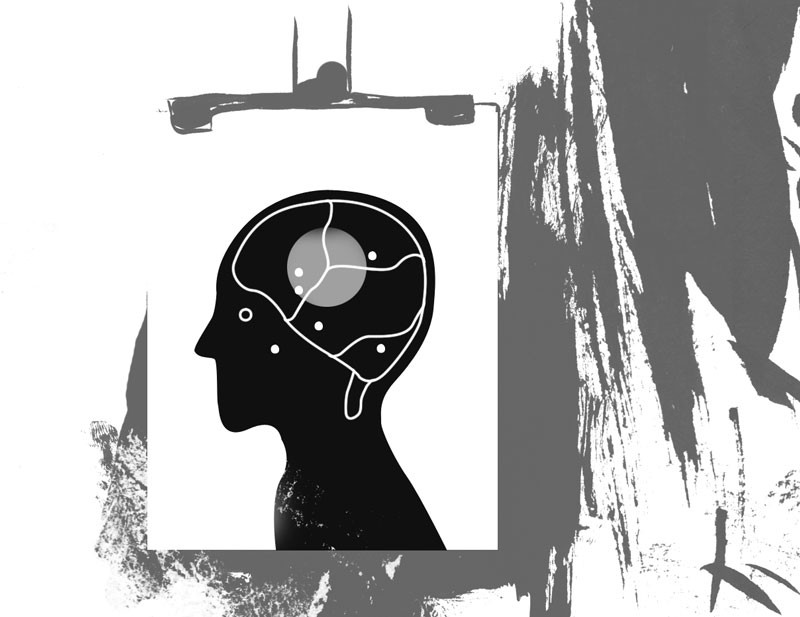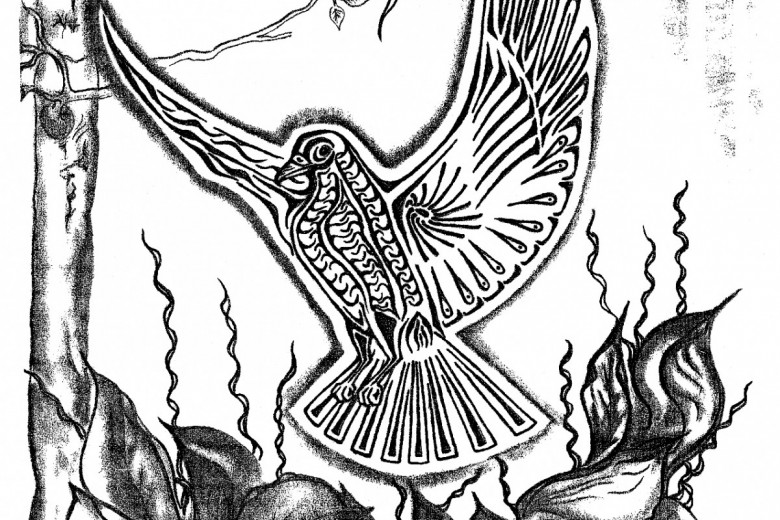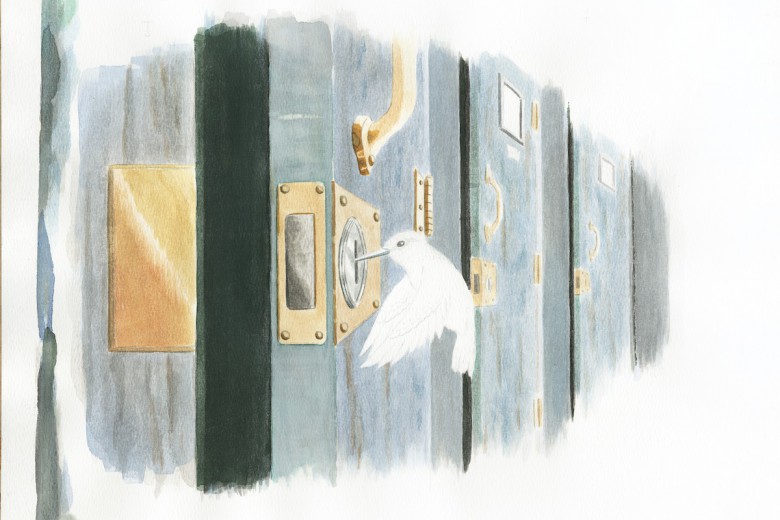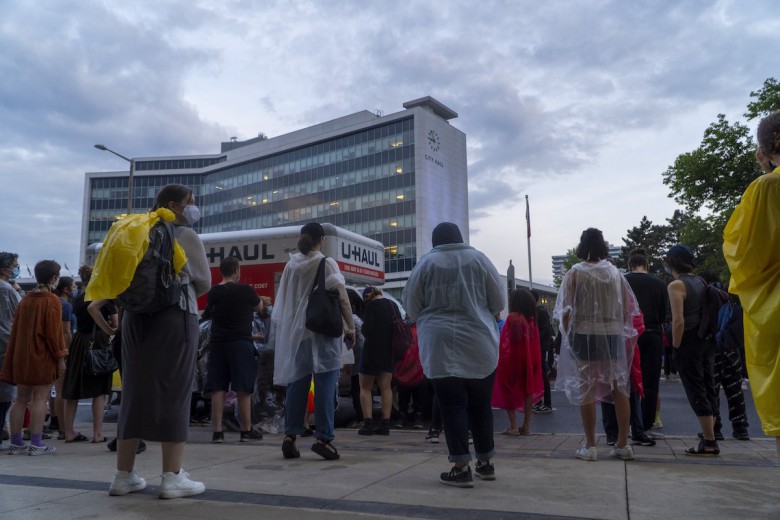
Twenty-four-year-old Chris Klim was shot to death a little over a year ago, when seven armed men came to his apartment in Vernon, B.C., a town of 40,000. Two men stayed outside the apartment while the leader and four others smashed the door in with a battering ram. Bewildered, Klim stood in his bedroom with a kitchen knife in hand. The armed men shot him twice. According to the forensic report, it was the bullet through his back that killed him.
The men admitted what they had done, but no one was convicted; in fact, no charges were laid.
Klim wasn’t involved in any criminal activity. He wasn’t connected to a gang, though the shooting was deliberate and carried out by professionals. All of this should provoke outrage across the country, and it would if the country knew of it in detail. But no one knows about it because media coverage was minimal.
There are two crucial components to the tragedy that explain this.
First, Klim was schizophrenic. His condition had made him suicidal that day, and not for the first time. A mental health worker was so concerned about Klim that a distress phone call was made to the local police station. That’s the second component: it was the RCMP who killed him. The detachment head, an inspector, was in the apartment. They went en masse on the afternoon of December 27, 2007 to save Klim’s life, to protect him from himself. But they killed him instead.
Initial reaction when I’ve told this story is disbelief followed by an interjection that there had to be more to it. There is. This past November, a coroner’s inquest found no fault in any of the police actions. The RCMP inspector present that day issued a sombre statement after the inquest. He said it was a sad situation without winners or losers. Most people might consider Klim and his family the obvious losers.
Testimony at the inquest indicated the police went to the apartment with no mental health intermediary. They tried phoning Klim, but he wasn’t answering. The police did not think to get the building manager to let them into the apartment. Instead, they chose to break into a delusional man’s apartment.
Klim was holding a knife when they burst in. He then went to his bedroom and closed the door. The police ordered him to come out. Eventually, he opened the door and stood holding the knife. They ordered him to drop it. He screamed at them to get out and walked toward them. An officer said he tasered Klim, without effect. Klim kept coming toward them. The testimony did not say if he behaved as though he was going to strike at them; Klim had no history of violence towards others. The closest officer said he was afraid for his life, yet Klim walked past him. A second officer shot him. He stumbled to the floor and was shot in the back by a third officer. That bullet entered his heart and killed him.
Afterwards, the RCMP spokesperson trotted out the RCMP policy manual’s phrasing in order to defend her colleagues’ actions: officers fired due to “fear of grievous bodily injury or death.” After the inquest, another police spokesperson brought out the other predictable script: two investigations done by other police forces found that “the force used in this case was appropriate and that correct procedures were followed.” These same words would likely have been used to explain away Robert Dziekanski’s death by tasering at the Vancouver airport in October 2007 if the incident had not been videotaped by a bystander.
In the first months of 2009, the public inquiry into the Dziekanski case was in the media almost every day. Those who followed the case were stunned and saddened by the blunders that led to his death. Lawyers grilled the RCMP officers who subdued Dziekanski. Testimonies were carefully examined, compared, pulled at to determine the truth. Because of that and the video evidence, contradictions were obvious. Everything about the police conduct painted a damning picture. Truth and justice were being served.
Yet, in spite of all the mistakes, Dziekanski’s death was accidental. It was not intended. Klim’s death was deliberate; he was shot in the heart at close range.
By any standards of common sense, it is unacceptable to let Klim’s death stand as it now does. His death was not captured on camera, but that shouldn’t be the deciding factor in determining whether or not further examination is warranted.
Klim’s needless death demands accountability. At the very least, the officers should be reprimanded, if not face stronger repercussions. The inspector should be held responsible. There needs to be an immediate lengthening of the various police training programs. Few police forces in the country train longer than six months. Most university degrees take four years to complete and many technical programs last two years. It takes a year to become a cook, and six months to become a cop. That has to change.
Policing is an extremely difficult and demanding job. Officers need to know laws, weaponry, combat, psychology, record keeping, expert driving skills, investigation and public relations. They need to have a working familiarity and level of comfort with cross-cultural issues, mental health issues, gay and lesbian issues, suicide prevention and domestic violence intervention techniques. They have an extremely stressful, demanding job, and have to learn how to healthily process that stress. Six months training? One of the officers involved in the shooting had only been in service for two months.
The whole tragedy says a lot about how we understand mental illness – or how we don’t. Undoubtedly, media types looked at the story and concluded, “Ah well, the guy was crazy. What were the cops supposed to do?” Mental illness gives others an excuse to cease seeing the human element. There is no reason to think a trained mental health worker or even a caring, empathetic communicator could not have diffused the situation that day. Mental illness, the vast majority of the time, does not make someone unreachable. Klim needed help. Someone you know and love might need similar help with a mental health issue some day. We deserve that help as much as someone with a broken leg would.
Klim was not a schizophrenic who was sadly, unavoidably shot and killed. He was a human being with a future filled with possibilities and his death was negligent. This much, at least, needs to be publicly recorded.






